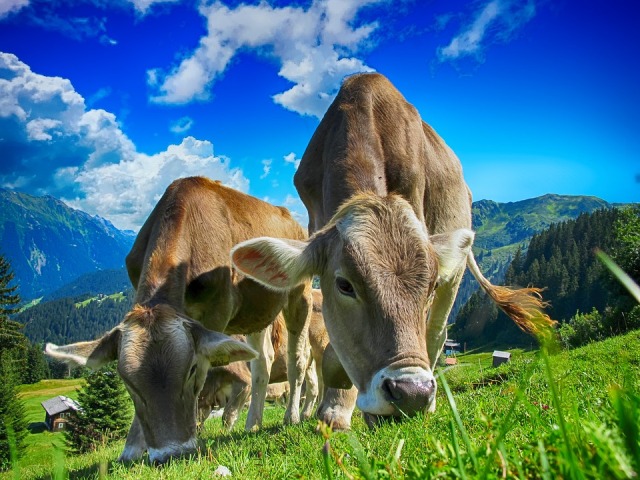FROM THE FIELD: Restoring Dutch ‘green deserts’
The Western Peat Meadows of the Netherlands look like classic Dutch countryside (cows, windmills and green fields), but the views mask a significant loss of biodiversity, caused by intensive farming methods. As the UN Decade of Ecosystem Restoration begins, a local organisation is planning to restore 100 million of hectares of land, across the world.

 Farmer Monique van der Laan from farm De Beekhoeve in Kamerik, the Netherlands uses her shovel in the peat meadows, while surrounded by visitors, by Erica ten Broeke/ UNRIC
Farmer Monique van der Laan from farm De Beekhoeve in Kamerik, the Netherlands uses her shovel in the peat meadows, while surrounded by visitors, by Erica ten Broeke/ UNRIC
The not-for-profit organisation, Commonland, an official partner of the UN Decade, which began in June, plans to transform tracts of land, equivalent to the size of Spain, into thriving ecosystems by 2040. The projects range from the Western Peat Meadows to the Maasai Mara in Kenya.
The former is affected by climate change, and is seeing rising sea waters and the gradual sinking of the soil; many farmers are struggling to make ends meet. As part of the Commonland project, they are changing their practices, improving the soil and sowing herb-rich grassland. It is hoped that, by 2050, farmers will earn part of their income from storing carbon and freshwater, as well as through tourism.
Find out more about Commonland’s work, and the Decade of Ecosystem Restoration, here.
Visit UN News for more.
- READ MORE ON:
- Erica
- Kenya
- Dutch
- Spain
- Netherlands
ALSO READ
Indian American Akshay Bhatia claims dramatic win, books Augusta Masters spot
Science News Roundup: Forecasts for cloudy skies cast shadow over North American solar eclipse; SpaceX launches South Korea's second spy satellite amid race with North and more
UNESCO, Lukenya University plant 10,000 trees in Amboseli's Biosphere Reserve
Huge crowds await a total solar eclipse in North America. Clouds may spoil the view
Indian-American Akshay Bhatia claims dramatic win, books Augusta Masters spot










